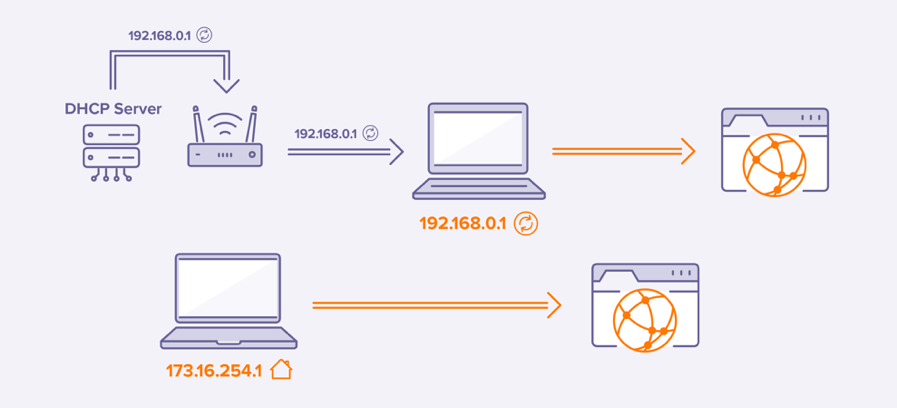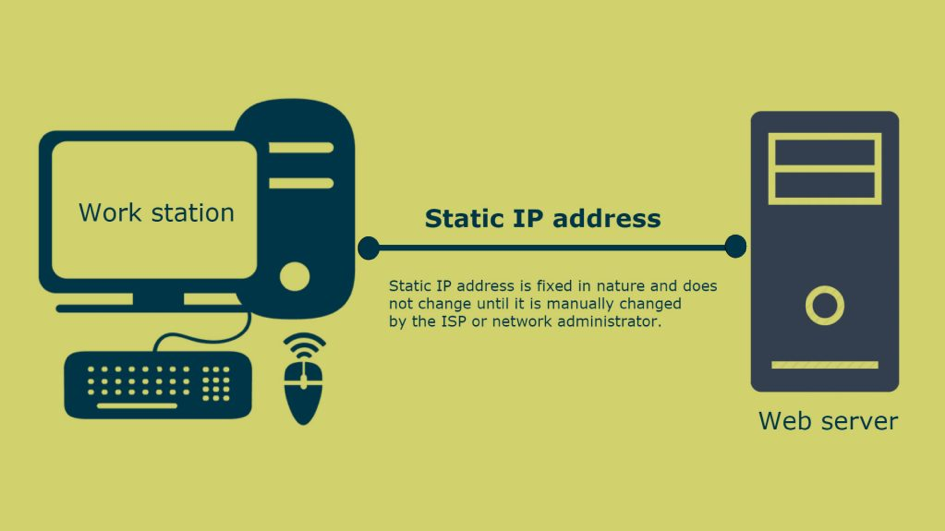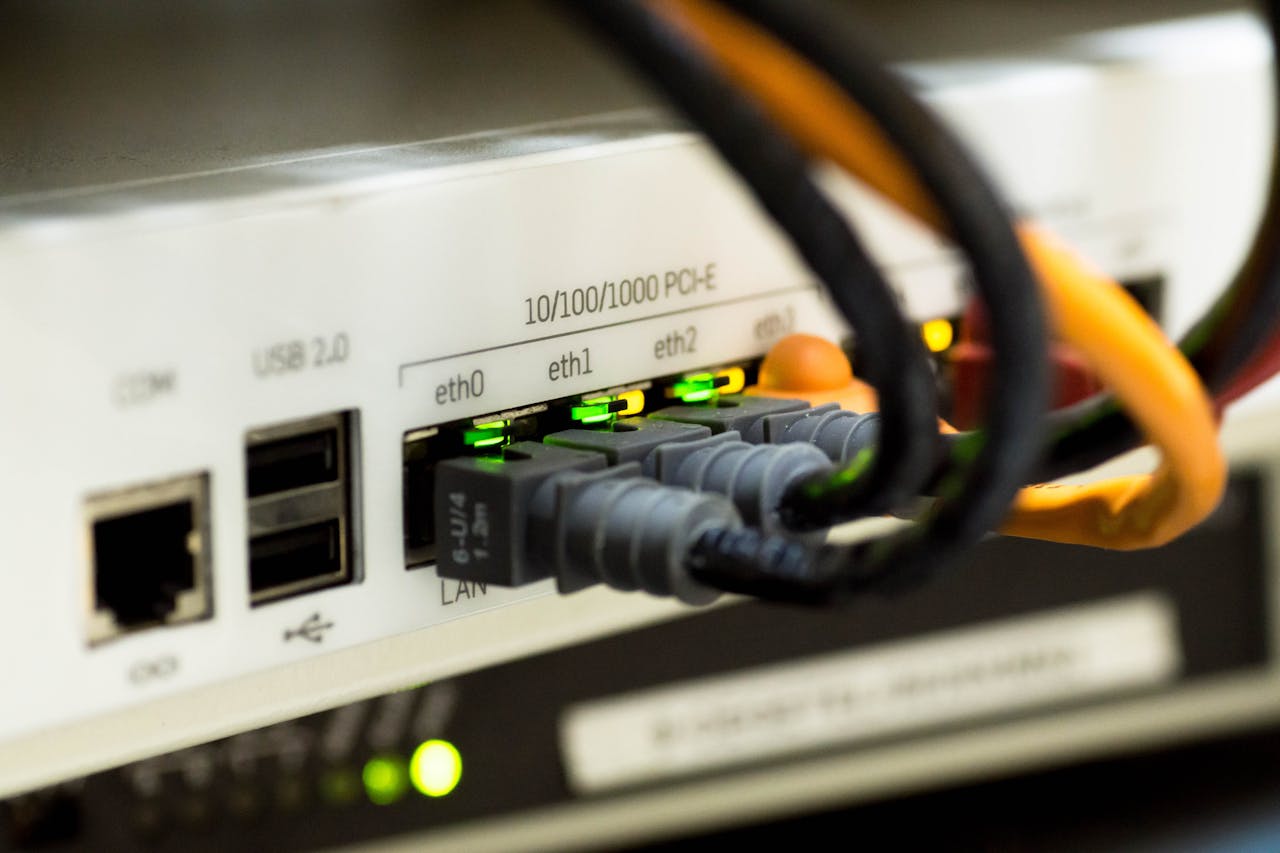What is Static IP and Why it is Required for Businesses?
-
December 1, 2022
-
6 min read

In the digital economy, the internet is the backbone of every business, and having a holistic IT strategy is crucial. One important part of the IT strategy is the IP infrastructure. All of us have heard about IP addresses, but understanding the foundations, types, and pros & cons of the kind of IP addresses is critical to developing a secure and fast IT infrastructure for the company. Let’s understand this in detail.
What is an IP Address?
Addresses make it easier to find people or connect with them. Much like the real world, the internet is a whole world in itself. In the world of the internet, there are millions of devices. Each device has assigned an address known as the IP address that makes it easier for the network to communicate with the device. IP addresses are a unique series of numerals that are assigned to each device and that makes it easier for the network to find and exchange data between the devices and the internet.
IP addresses are provided by your ISP (internet service provider) or broadband provider. When you use a network provided by the ISP, they use the IP address assigned to your device to route the information.
Static IP Address Vs Dynamic IP Address
Dynamic IP address
There are two kinds of IP addresses: Static and Dynamic. Let’s first talk about the dynamic IP address since it is commonly used among most individual users. As the name suggests, Dynamic IP addresses are the IP addresses that change every time the device connects with the network. Simply put, the device is allocated an IP address that is available at that time from the pool of the IP addresses. Think of it as a parking spot where there is no fixed spot assigned; you get to park wherever there is a spot available. For most casual or individual internet users, having a dynamic IP address is just fine.

Static IP address
As the name suggests, a static IP address is just that: an IP address that doesn’t change. A static IP address is also referred to as a fixed or dedicated IP address. It simply means that once an IP address is assigned to a device, it remains the same every time the device connects with a network. A static IP address is given by the broadband provider and is unique for devices associated with that network.

Benefits of Static IP Address for Businesses
For businesses, it is always best to get a static IP address as it has many advantages and serves the requirements of error-free communication between devices, operation of peripheral devices such as printers, webcams, etc. With a static IP, all of this works much more stably. Besides these, static IP addresses become even more critical in the following cases:
- When businesses want to run a unique web or email server requiring users to connect from a specific network.
- Ensuring security by enabling business owners to use devices that can only connect to the network with the static IP assigned.
- While using VPN (Virtual Private Network) or remote networking services when a device that is off-site needs to connect with the office network.
Let’s look at some advantages of Static IP for businesses in detail:
- Static IP addresses provide better DNS support since they are much easier to set up and manage with DNS servers.
- A static IP address provides better server hosting than a dynamic one and makes it easier and quicker for people to find your website or services with a static IP address.
- In today’s world, remote working has become a norm for all businesses static IP makes it easier for the people working off-site to connect with your business network using a VPN.
- Static IP addresses make VoIP (Voice over Internet Protocol) communication for teleconferencing or any other voice-based or video-based calls much more reliable.
- Static IP addresses allow businesses to get geolocation services that are much more reliable since they can match the IP address to the exact physical location hence the information is much more accurate.
Services and Equipment that require a Static IP
- FTP Servers or File Transfer Protocol servers are required to transfer files between different devices within a local network.
- Web servers – A web server that helps with hosting your business website. To manage configuration for your web server, having a static IP is advisable.
- Email servers – Secure email communication is critical to business. Having a seamless email server can help maintain the productivity of the business. It will also allow having more control over the security of the emails, managing spam, and more. It also maintains the privacy of critical business information.
- Database – Businesses run on data, and most of them have database servers to save crucial and confidential business data such as billing data, information about products and services, etc. Such data servers require a static IP address because the information that a device is requesting is sensitive in nature and a static IP will ensure that the information is passed on to a reliable and known address.
- VPN access – In the new normal, most people are working remotely; this is going to be how the enterprise workforce of the future function. In this scenario security and privacy concerns have further risen. A VPN or Virtual Private Network allows businesses to manage secure communication even when working remotely and offsite. Static IPs are essential to establishing VPN for the enterprise to give secure remote access to their business network.
- VoIP – An aftereffect of the growing trend of remote work is the amount of voice or video calls has increased significantly, which requires establishing a stable VoIP or Voice Over Internet Protocol system. Further, the security of VoIP is extremely important. Though Static IPs are not necessary to establish a VoIP system, using them is recommended.
Wrapping up
The Internet has become one of the basic needs for running a business today. Having a robust IT infrastructure helps with the smooth running of business processes. Now more than ever, IP strategy is a critical component of the IT infrastructure. While dynamic IPs work for individual use, Static IPs have multiple business benefits and are a must to ensure the security, privacy, and efficiency of the network communication.
 Share
Share









